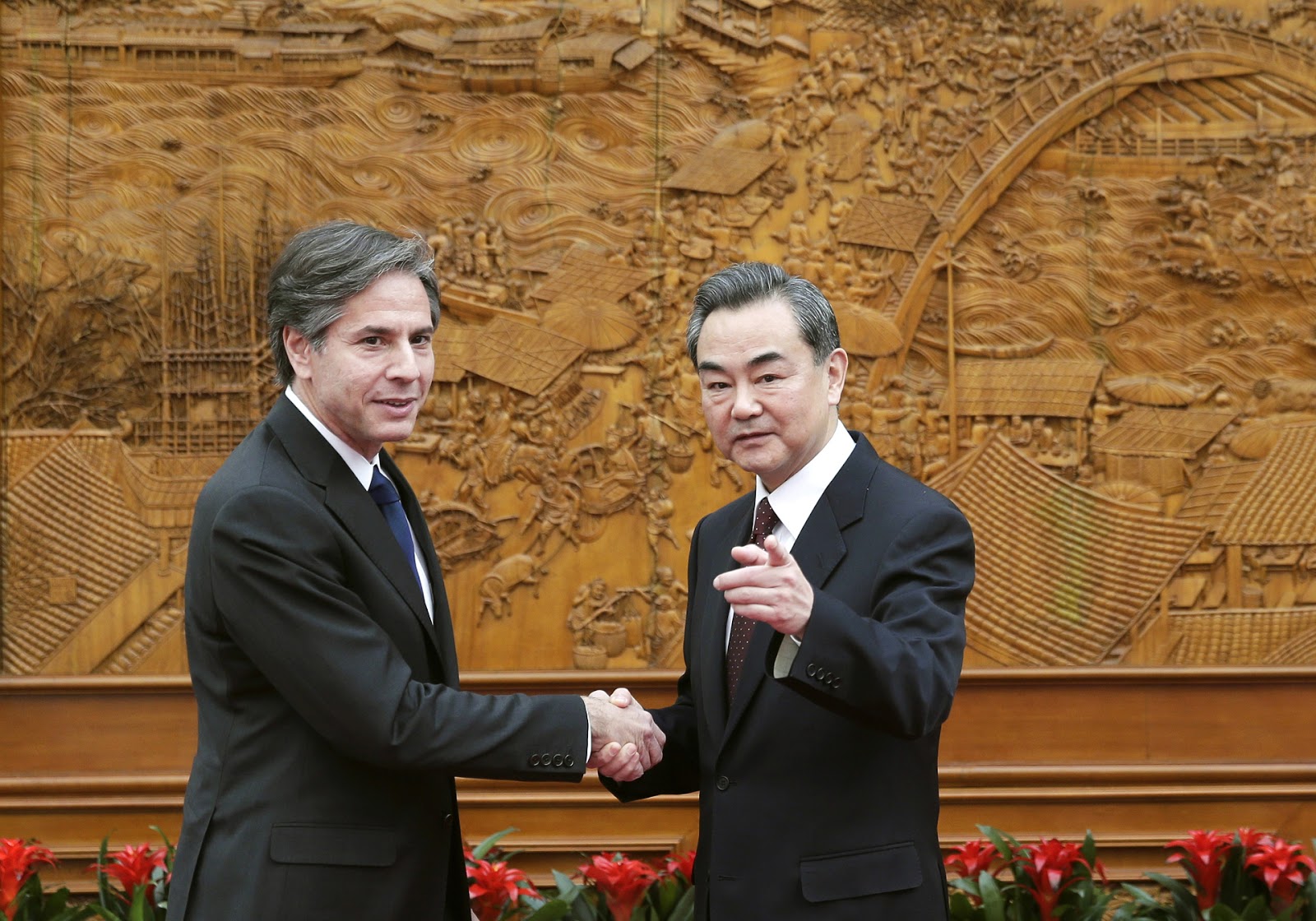Biden chooses diplomatic cabinet nominees, but Trump’s not done with disruptive attacks on China
Joe Biden has nominated a set of Obama administration alumni to serve in key foreign policy posts, including Antony Blinken as Secretary of State. What might the selections mean for U.S.-China relations?

Today, U.S. President-elect Joe Biden announced six of his key nominees for national security and foreign policy posts. Their names, and titles they would hold pending Senate confirmation next year:
- Antony Blinken — Secretary of State.
- Linda Thomas-Greenfield — Ambassador to the UN.
- Jake Sullivan — National Security Advisor.
- John Kerry — Climate Envoy.
- Alejandro Mayorkas — Secretary of Homeland Security.
- Avril Haines — Director of National Intelligence.
The nominees are all Obama administration alumni.
- Blinken is a “defender of global alliances,” the New York Times writes. The Harvard- and Columbia-educated foreign policy professional served in the Obama administration as deputy secretary of state and deputy national security adviser. (He also served on the National Security Council at the Clinton White House from 1994 to 2001.)
- Sullivan also served in the Obama administration, and was the “closest strategic adviser” to Hillary Clinton when she was Secretary of State. NYT says that the two men have become Biden’s “brain trust and often his voice on foreign policy matters.”
- Linda Thomas-Greenfield is a career foreign service officer who was Assistant Secretary of State for African Affairs in the State Department from 2013 to 2017. Biden plans to return the UN ambassadorship to a cabinet-level post, after Trump downgraded it, NYT reports.
What do the nominations mean for U.S.-China relations?
Competition through allies, in a phrase. Antony Blinken signalled that Biden would bring a more global approach to pressuring China in an interview in July:
…one of the things I think that’s been a deficiency in the Trump administration’s approach to contending with China is it’s done so not with our allies and partners but without them, indeed while alienating them. We need to rally our allies and partners instead of alienating them to deal with some of the challenges that China poses…
Presumably, in a Biden administration, we would see more emphasis on the Indo-Pacific, more emphasis on our own hemisphere as well as some sustained engagement, I would hope with Africa and obviously, Europe remains a partner first resort not last resort when it comes to contending with the challenges we face.
Perhaps anticipating this, Chinese Foreign Minister Wáng Yì 王毅 is travelling this week to Tokyo and Seoul, to “shore up ties with two U.S. allies,” Bloomberg reports.
More implications of the nominations of Blinken and others:
- The next U.S. Secretary of State is unlikely to continue Mike Pompeo’s tradition of throwing rhetorical bombs at China, like earlier this month when he said countries had to choose between “barbarism on one side and freedom on the other.”
- John Kerry’s nomination means that climate change is, as expected, an area where the Biden administration will seek cooperation with China.
“Two months of provocation” by Trump
Though the Biden administration, as expected, appears set to return to a more traditional and alliance-based foreign policy, Trump still has nearly two months in office, plenty of time to announce more moves provoking China. Several moves were reported over the weekend:
- A U.S. Navy admiral visited Taiwan recently, Reuters reports, leading the Chinese foreign ministry to threaten “a legitimate and necessary response.” The SCMP said that this visit, which was unannounced and has not been confirmed by the U.S. or Taiwanese governments, “suggests two months of provocation by Donald Trump.”
- An annual U.S.-Taiwan economic dialogue, called the Economic Prosperity Partnership Dialogue with Taiwan, held its inaugural session in Washington, D.C. on November 20, Bloomberg reports.
- The U.S. is “close to declaring” 89 more Chinese companies as national security risks, restricting their access to U.S. technology, reports Reuters.
- “Other predicted actions from Trump include anti-exploitation protections for U.S. technology, expanding sanctions on Chinese entities and individuals linked to crackdowns and human rights abuses in Hong Kong and Xinjiang, and further crackdowns on illegal fishing,” per the Guardian.
Senior Trump officials now want to “create an informal alliance of Western nations to jointly retaliate when China uses its trading power to coerce countries,” the Wall Street Journal reports. The ambitious plan was crafted in reaction to Beijing’s pressuring of Australia, though the officials declined to say which countries they had discussed the idea with, and the plan faces multiple hurdles, including, as the officials acknowledged, “a waning Trump administration.”
More information on what to expect for U.S.-China relations, during and after the Trump-Biden transition:
- Trump’s U.S. investment ban aims to cement tough-on-China legacy / Guardian
- Longtime diplomat says Trump conspiracies hurt U.S. more than Russia, China / Axios
- “He’s been advised to resist any olive branch, because it’s not a real one”—Biden’s China policy / The Intelligence podcast by the Economist
-
Four experts give their view on what China can expect from the Biden administration / China Britain Business Council
Comments by Elizabeth Economy, Kaiser Kuo, James McGregor, and Kerry Brown.






